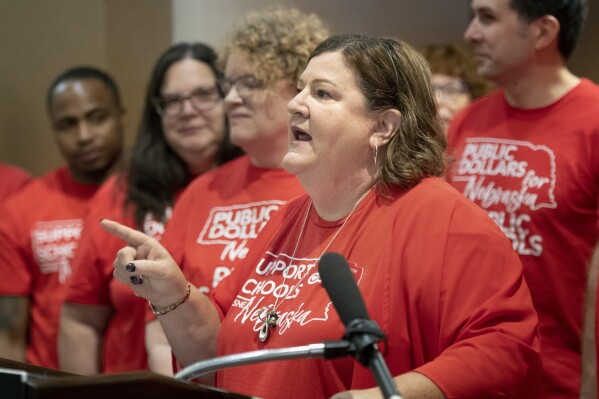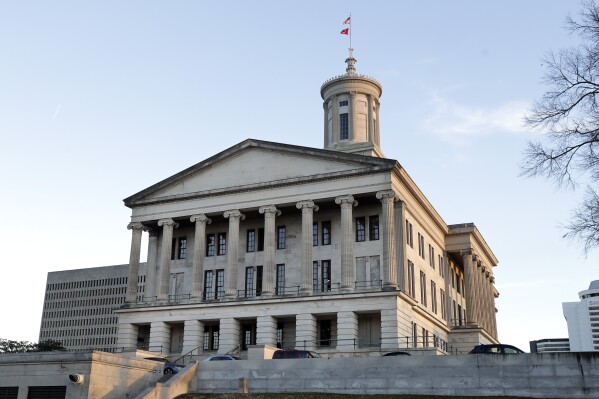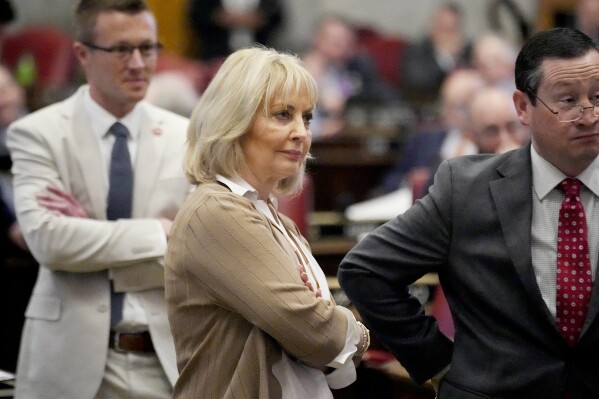$6,500 school vouchers coming to Georgia as bill gets final passage and heads to governor
ATLANTA (AP) — Proclaiming that “education is truly the great equalizer,” Gov Brian Kemp signed a law on Tuesday that will give up to $6,500 a year to some Georgia families to pay for private school tuition or home-schooling expenses.
It’s a victory for the Republican governor, whose support helped push a bill across the finish line that failed in 2023, delivering a priority that had eluded conservative activists for years. The achievement burnishes Kemp’s conservative credentials if he runs for the U.S. Senate or president in the future. The Georgia effort is part of a nationwide GOP wave favoring education savings accounts.
Kemp signed other education-related bills Tuesday, including one requiring parents to give permission before children younger than 16 could create social media accounts. Similar measures have been blocked in other states by legal challenges.
Kemp portrayed Senate Bill 233, the Georgia Promise Scholarship, as part of an “all of the above” strategy that also supports traditional public schools, noting teacher pay raises, increased school security spending and efforts to help children read better. But he said parents should take the lead in deciding how children learn.



“We know it’s not the government’s role to dictate to families what the best choice is for their child,” Kemp said. “It is our job to support them in making that decision.”
Opponents argue the voucher program will subtract resources from public schools, even as other students remain behind.
“This bill robs the poorest students in Georgia’s poorest schools of the funding they need,” said Lisa Morgan, president of the Georgia Association of Educators, one of the state’s largest teacher groups.
The bill would provide $6,500 education savings accounts to students leaving public schools that rank in Georgia’s bottom 25% for academic achievement. That money could be spent on private school tuition, home-schooling supplies, therapy, tutoring or even early college courses for high school students.
The program won’t begin handing out money until the 2025-2026 school year, and lawmakers will have to agree next year on how much money to allocate. Spending would be limited to 1% of the $14.1 billion that Georgia spends on its K-12 school funding formula, or $141 million. That could provide more than 21,000 scholarships. Eligible students are supposed to have attended a low-performing public school for at least two consecutive semesters, or be about to enter kindergarten at such a school.
Students from households with incomes of less than four times the federal poverty level would be prioritized. Four times the federal poverty level is about $100,000 for a family of three.
Georgia already gives vouchers for special education students in private schools and $120 million a year in income tax credits for donors to private school scholarship funds.
Kemp also signed Senate Bill 351, which would as of July 1, 2025, require children younger than 16 to have their parents’ explicit permission to create social media accounts.
“We cannot continue to sit by and do nothing as young Georgians develop addictions and disorder and suffer at the hands of online antagonists,” Kemp said.
A number of other states including Louisiana, Arkansas, Ohio and Utah passed laws last year requiring parental consent for children to use social media. Laws have currently been blocked by courts in Arkansas, California and Ohio. NetChoice, a trade group of online businesses, has warned Kemp that it is likely to sue over Georgia’s law as well.
“There are better ways to protect Georgians, their families and their data online without infringing on their freedoms or jeopardizing their safety and security,” Carl Szabo, NetChoice’s vice president and general counsel, said in a statement.
Kemp said he wasn’t worried about legal threats. “If we were concerned about all the legal challenges that we may get this session, we probably wouldn’t have passed anything,” he told reporters.
The law also would ban social media use on school devices and internet services, require porn sites to verify that users are 18 or over and mandate additional education by schools on social media and internet use.
Disclaimer: The copyright of this article belongs to the original author. Reposting this article is solely for the purpose of information dissemination and does not constitute any investment advice. If there is any infringement, please contact us immediately. We will make corrections or deletions as necessary. Thank you.



